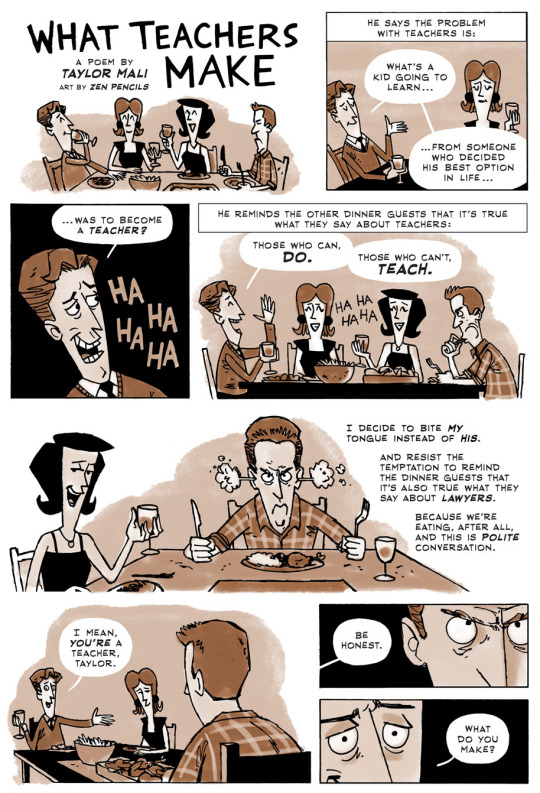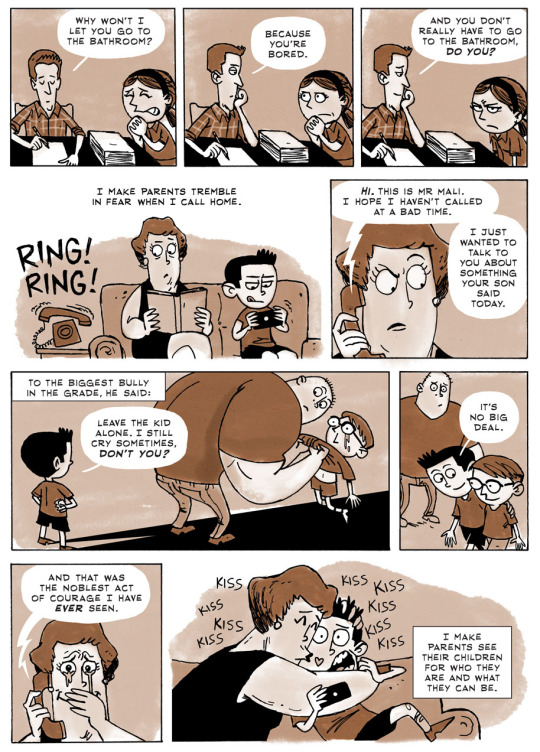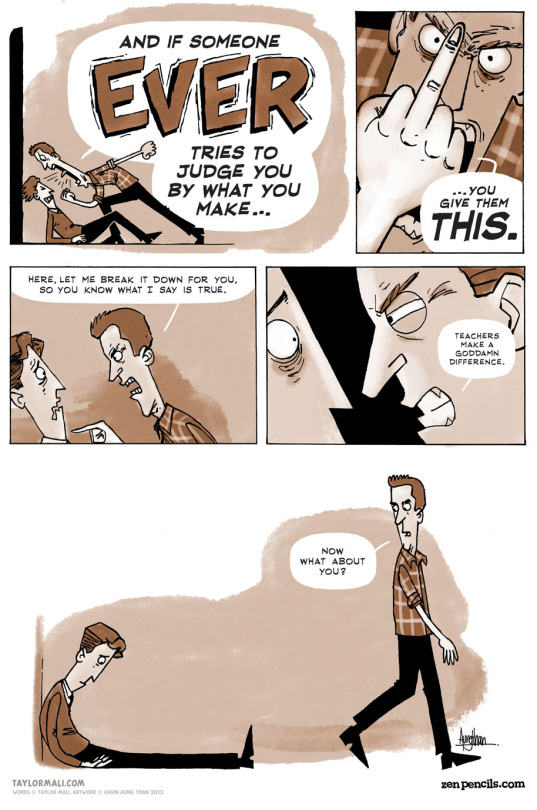Don't wanna be here? Send us removal request.
Quote
PAYING FOR PATRIOTISM Somebody was recently remonstrating with me in connection with certain remarks that I have made touching the history of English misgovernment in Ireland. The criticism, like many others, was to the effect that these are only old unhappy far-off things and battles long ago; that the present generation is not responsible for them; that there is, as the critic said, no way in which he or I could have assisted or prevented them; that if anyone was to blame, he had gone to his account; and we are not to blame at all. There was mingled with his protest, I think, a certain suggestion that an Englishman is lacking in patriotism when he resurrects such corpses in order to connect them with crime. Now the queer thing is this: that I think it is I who am standing up for the principle of patriotism; and I think it is he who is denying it. As a matter of fact, I am one of the few people left, of my own sort and calling, who do still believe in patriotism; just as I am among the few who do still believe in democracy. Both these ideas, were exaggerated extravagantly and, what is worse, erroneously, or entirely in the wrong way, during the nineteenth century; but the reaction against them today is very strong, especially among the intellectuals. But I do believe that patriotism rests on a psychological truth; a social sympathy with those of our own sort, whereby we see our own potential acts in them; and understand their history from within. But if there truly be such a thing as a nation, that truth is a two-edged sword, and we must let it out both ways. Therefore I answer my critic thus. It is quite true that it was not I, G. K. Chesterton, who pulled the beard of an Irish chieftain by way of social introduction; it was John Plantagenet, afterwards King John; and I was not present. It was not I, but a much more distinguished literary gent, named Edmund Spenser, who concluded on the whole that the Irish had better be exterminated like vipers; nor did he even ask my advice on so vital a point. I never stuck a pike through an Irish lady for fun, after the siege of Drogheda, as did the God-fearing Puritan soldiers of Oliver Cromwell. Nobody can find anything in my handwriting that contributes to the original drafting of the Penal Laws; and it is a complete mistake to suppose that I was called to the Privy Council when it decided upon the treacherous breaking of the Treaty of Limerick. I never put a pitchcap on an Irish rebel in my life; and there was not a single one of the thousand floggings of ‘98 which I inflicted or even ordered. If that is what is meant, it is not very difficult to see that it is quite true. But it is equally true that I did not ride with Chaucer to Canterbury, and give him a few intelligent hints for the best passages in The Canterbury Tales. It is equally true that there was a large and lamentable gap in the company seated at the Mermaid; that scarcely a word of Shakespeare’s most poetical passages was actually contributed by me; that I did not whisper to him the word 'incarnadine’ when he was hesitating after 'multitudinous seas’; that I entirely missed the opportunity of suggesting that Hamlet would be effectively ended by the stormy entrance of Fortinbras. Nay, aged and infirm as I am, it were vain for me to pretend that I lost a leg at the Battle of Trafalgar, or that I am old enough to have seen (as I should like to have seen), ablaze with stars upon the deck of death, the frail figure and the elvish face of the noblest sailor of history. Yet I propose to go on being proud of Chaucer and Shakespeare and Nelson; to feel that the poets did indeed love the language that I love and that the sailor felt something of what we also feel for the sea. But if we accept this mystical corporate being, this larger self, we must accept it for good and ill. If we boast of our best, we must repent of our worst. Otherwise patriotism will be a very poor thing indeed.
G.K. Chesterton, ‘Paying for Patriotism’, The Common Man.
9 notes
·
View notes
Text
John Adams’s ‘To-Do’ List
“Possibly it was his first or second day back in Philadelphia, in early February 1776, after the long wintry journey from home, that Adams, in his room at Mrs Yard’s, drew up a list of what he was determined to see accomplished. Or as appears more likely, from its placement in his diary, the list had been composed earlier, somewhere en route. Undated, it included, “An alliance to be formed with France and Spain”; “Government to be assumed by every colony”; “Powder mills to be built in every colony and fresh efforts to make saltpetre [for the making of gunpowder].” And, on the second of the two small opposing pages in the diary, he wrote, a “Declaration of Independency.” -- David McCullough, John Adams, 89.
8 notes
·
View notes
Photo

“Scarred”, Watercolour on Canson Montval, A4 size. Spent all day watching the “Undercover Boss” flick yesterday. Had to paint this to take him seriously again. You can get my Star Wars prints through this link! https://www.etsy.com/listing/222697843/custom-print-of-my-artwork?ref=shop_home_active_1
8K notes
·
View notes
Photo
Yet again I keep thinking I must go to see the film again...

“I will fulfil our destiny.”
Kylo Ren on his way through the forest to battle Rey and Finn.
Watercolour and gouache on Canson Montval paper, A3 size.
6K notes
·
View notes
Photo
Quite.





WHAT TEACHERS MAKE by Taylor Mali.
334K notes
·
View notes
Photo
Well, quite.

"Footprints", the Tatooine edition.
12 notes
·
View notes
Quote
To love at all is to be vulnerable. Love anything and your heart will certainly be wrung and possibly be broken. If you want to make sure of keeping it intact, you must give your heart to no one, not even to an animal. Wrap it carefully round with hobbies and little luxuries; avoid all entanglements; lock it up safe in the casket or coffin of your selfishness. But in that casket- safe, dark, motionless, airless- it will change. It will not be broken; it will become unbreakable, impenetrable, irredeemable. The alternative to tragedy, or at least to the risk of tragedy, is damnation. The only safe place outside Heaven where you can be perfectly safe from all the dangers and perturbations of love is Hell.
C.S.lewis- The Four Loves (via paulstead)
True, dat.
46 notes
·
View notes
Photo
I enjoy telling certain friends* who entered this world by Caesarian section, that they shouldn't have birthdays, as they weren't born, but were only "ripped untimely".
* Ones with well-honed senses of perspective and humour.




586K notes
·
View notes
Photo
Well, quite.


36K notes
·
View notes
Quote
William Roper: So, now you give the Devil the benefit of law! Sir Thomas More: Yes! What would you do? Cut a great road through the law to get after the Devil? William Roper: Yes, I'd cut down every law in England to do that! Sir Thomas More: Oh? And when the last law was down, and the Devil turned 'round on you, where would you hide, Roper, the laws all being flat? This country is planted thick with laws, from coast to coast, Man's laws, not God's! And if you cut them down, and you're just the man to do it, do you really think you could stand upright in the winds that would blow then? Yes, I'd give the Devil benefit of law, for my own safety's sake!
Robert Bolt, A Man For All Seasons.
2 notes
·
View notes
Quote
'A state has no worse enemy than an absolute king. First, under such a ruler there is no common law. One man holds the whole law in his grasp; that means An end to equality. When laws are written down, Both rich and poor possess their equal right; the weak, Threatened by a prosperous neighbour, can Retort in the same terms; the humble man's just cause Defeats the great.'
Euripides, The Suppliant Women
0 notes
Photo

"Our job is to police the citizens we have - not create the citizens we would like." Chief Judge Fargo, Judge Dredd in 'Oz', 2000AD Prog 559.
3 notes
·
View notes
Link
…is the story apparently told by Martin Bell of reporting on an event in Belfast in the early 1970s at which Dr Paisley was speaking, shortly after Bell had broadcast BBC reports critical of Ulster Loyalists.
Dr Paisley spotted Bell at the back of the hall, and declared (in his inimitably...
5 notes
·
View notes
Photo








Classic childhood books from yesteryear
8K notes
·
View notes
Quote
Confess: it’s my profession that alarms you. This is why few people ask me to dinner, though Lord knows I don’t go out of my way to be scary. I wear dresses of sensible cut and unalarming shades of beige, I smell of lavender and go to the hairdresser’s: no prophetess mane of mine, complete with snakes, will frighten the youngsters. If I roll my eyes and mutter, if I clutch at my heart and scream in horror like a third-rate actress chewing up a mad scene, I do it in private and nobody sees but the bathroom mirror. In general I might agree with you: women should not contemplate war, should not weigh tactics impartially, or evade the word enemy, or view both sides and denounce nothing. Women should march for peace, or hand out white feathers to arouse bravery, spit themselves on bayonets to protect their babies, whose skulls will be split anyway, or, having been raped repeatedly, hang themselves with their own hair. These are the functions that inspire general comfort. That, and the knitting of socks for the troops and a sort of moral cheerleading. Also: mourning the dead. Sons, lovers, and so forth. All the killed children. Instead of this, I tell what I hope will pass as truth. A blunt thing, not lovely. The truth is seldom welcome, especially at dinner, though I am good at what I do. My trade is courage and atrocities. I look at them and do not condemn. I write things down the way they happened, as near as can be remembered. I don’t ask why, because it is mostly the same. Wars happen because the ones who start them think they can win. In my dreams there is glamour. The Vikings leave their fields each year for a few months of killing and plunder, much as the boys go hunting. In real life they were farmers. They come back loaded with splendour. The Arabs ride against Crusaders with scimitars that could sever silk in the air. A swift cut to the horse’s neck and a hunk of armour crashes down like a tower. Fire against metal. A poet might say: romance against banality. When awake, I know better. Despite the propaganda, there are no monsters, or none that can be finally buried. Finish one off, and circumstances and the radio create another. Believe me: whole armies have prayed fervently to God all night and meant it, and been slaughtered anyway. Brutality wins frequently, and large outcomes have turned on the invention of a mechanical device, viz. radar. True, valour sometimes counts for something, as at Thermopylae. Sometimes being right— though ultimate virtue, by agreed tradition, is decided by the winner. Sometimes men throw themselves on grenades and burst like paper bags of guts to save their comrades. I can admire that. But rats and cholera have won many wars. Those, and potatoes, or the absence of them. It’s no use pinning all those medals across the chests of the dead. Impressive, but I know too much. Grand exploits merely depress me. In the interests of research I have walked on many battlefields that once were liquid with pulped men’s bodies and spangled with exploded shells and splayed bone. All of them have been green again by the time I got there. Each has inspired a few good quotes in its day. Sad marble angels brood like hens over the grassy nests where nothing hatches. (The angels could just as well be described as vulgar or pitiless, depending on camera angle.) The word glory figures a lot on gateways. Of course I pick a flower or two from each, and press it in the hotel Bible for a souvenir. I’m just as human as you. But it’s no use asking me for a final statement. As I say, I deal in tactics. Also statistics: for every year of peace there have been four hundred years of war.
Margaret Atwood, 'The Loneliness of the Military Historian'
10 notes
·
View notes
Quote
The baby doesn’t understand English and the devil knows Latin.
Ronald Knox when asked to perform a baptism in the vernacular. (via exsules-filii-evae)
46 notes
·
View notes
